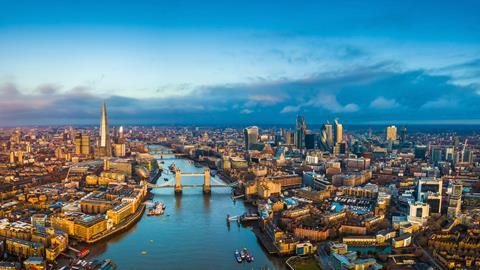‘Uniting for global challenge and opportunity’ is the theme of the fifth London International Disputes Week (LIDW), a gathering of the international disputes community that has been designed to foster collaboration and cooperation. 'Uniting for global challenge and opportunity’ describes the ethos of LIDW and this year all sessions and events have to be collaborative,' explains Michael Fletcher, Pinsent Masons partner and co-chair of LIDW24. 'The intention is to unite our community. We want to appeal not just to private practice lawyers in the UK, but to overseas and in-house lawyers, and anyone involved in dispute resolution, and encourage them to come to London.'

LIDW is a forum for litigators from all over the world to meet informally and discuss common issues. 'Disputes create challenges and opportunities – someone has an opportunity to use a legal right to bring a claim or to seek redress, and this presents challenges for both parties. Disputes are also impacted by external factors – including developments in technology – in particular AI – and economic and geopolitical developments. "Uniting for global challenge and opportunity" is this year’s theme because we want LIDW24 to be a forum for the global dispute resolution community to explore, together, how to address those challenges and the opportunities they bring.'
LIDW is growing. Last year there were 4,000 in person and virtual attendees from 46 jurisdictions, and just under 500 people attended the main conference, and this year’s event will be bigger. The main conference will be at the QEII Centre in Westminster on 4 June. 'We chose the QEII Centre because we wanted delegates to come to the heart of London. You have only to step out to see Big Ben and red telephone boxes.'
LIDW kicks off with International Arbitration Day, jointly hosted by Clyde & Co, Covington & Burling and Kirkland & Ellis which are all within a five-minute walk of each other, making it easy for delegates to move between sessions, which focus on different jurisdictions and regions, and join social events at each firm. There is also an opening reception at the Connaught Rooms in Holborn.
The main conference covers a wide range of topics including dispute funding, meeting client demand, risk and reputation, and AI in law. The opening keynote will be by Baroness Sue Carr, the lady chief justice, and Meg Kinnear, secretary general of the International Centre for Settlement of Investment Disputes (ICSID) and vice president of the World Bank, will give the closing keynote.
From Wednesday to Friday, members have the opportunity to organise their own events on different aspects of dispute resolution. 'There’s a real mix of topics, including group actions, arbitration, mediation, data, and litigation funding, and we encourage members to go with their own ideas,' says Fletcher, adding that these should reflect the central theme, and appeal to LIDW’s global membership.
LIDW is organised by a strategy group of about 60 professionals from law firms, barristers chambers and other disputes services. They are divided into smaller groups to look after specific events – i.e. International Arbitration Day, the main conference, member events – and an ESG sub-committee upholds LIDW’s credentials around sustainability and inclusivity. Members propose events – which range from conference sessions, smaller meetings and panels on specialist topics, to social events – there is even a fun run around the City of London – and once approved, they are added to the official calendar.
Events have to be collaborative – they will only be accepted if they are organised by two or more members or a member and a sponsor. 'If you want to run an event, you have to find at least one other LIDW member or sponsor to collaborate with. It can be a law firm, a barristers chambers, an in-house legal department – anyone in the disputes community,' explains Fletcher. Sponsors are suppliers to the legal industry – expert consultancies, eDiscovery providers, litigation funders and tech innovators. 'We try to find them opportunities to collaborate, for example to participate in panels where they can talk knowledgeably.'
Networking is an important element of LIDW, and this year sees the introduction of networking hubs at the International Arbitration Centre (IAC) and the International Dispute Resolution Centre (IDRC). 'These are convenient working spaces for international delegates, and they present additional networking opportunities. Although we want to promote London as a dispute resolution centre, we are also offering international delegates who travel to London more opportunities to get to know each other.'
There is a special focus on the young and young at heart (YAYAH). The YAYAH group, which is run by young lawyers, organises social events, supper clubs, and a mini conference for skills development and networking helps people at the start of their careers build an international network.
By facilitating important and topical conversations about dispute resolution, LIDW is strengthening London’s standing as a global leader in the international market. Furthermore, by actively supporting other dispute weeks, for example in Riyadh, and Dublin, it is helping to create a conference circuit for exchanging ideas and exploring global best practices in the field of dispute resolution.
The Gazette is LIDW24 media sponsor
































No comments yet